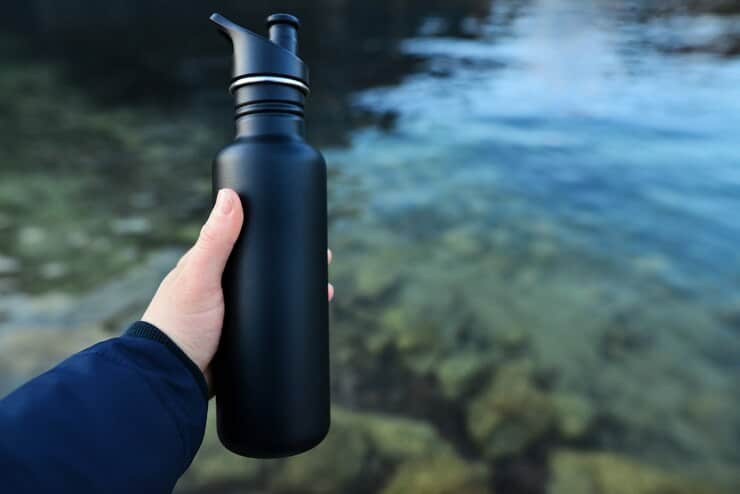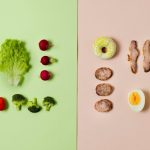Staying hydrated is crucial for overall health and well-being as a vegan. Choosing the right water bottle can significantly impact your hydration journey. In this comprehensive guide, we’ll explore the best BPA-free water bottles, including popular choices like Owala and YETI. Whether you’re seeking a stylish water bottle with a straw or a durable insulated option, we’ve got you covered.
Ready to elevate your hydration game? Dive into our in-depth reviews and expert recommendations to discover the best water bottle to suit your lifestyle. From daily hydration to outdoor adventures, find the perfect water bottle to keep you refreshed and hydrated all day long.
Staying Hydrated as a Vegan
Proper hydration helps the body absorb nutrients more efficiently. This is especially important for vegans, as plant-based diets rely on a variety of nutrients that need to be properly absorbed. Water aids in digestion and helps prevent constipation, which can be a concern for some vegans.
Staying hydrated supports the body’s natural detoxification processes, helping to flush out toxins. Dehydration can lead to fatigue and decreased energy levels, which can impact overall well-being.
The number of vegans has been steadily increasing. In 2024, approximately 3% of the global population identifies as vegan, with significant growth in countries like India, Germany, and the UK. Hydration is a booming trend in the beverage industry, with a growing focus on functional water drinks that offer additional health benefits. Plant-based waters, such as coconut water and aloe vera water, are becoming increasingly popular.
There is a growing market for vegan-friendly hydration products, including plant-based bottled waters and electrolyte drinks. These products cater specifically to the needs of vegans, ensuring they stay properly hydrated without compromising their dietary choices.
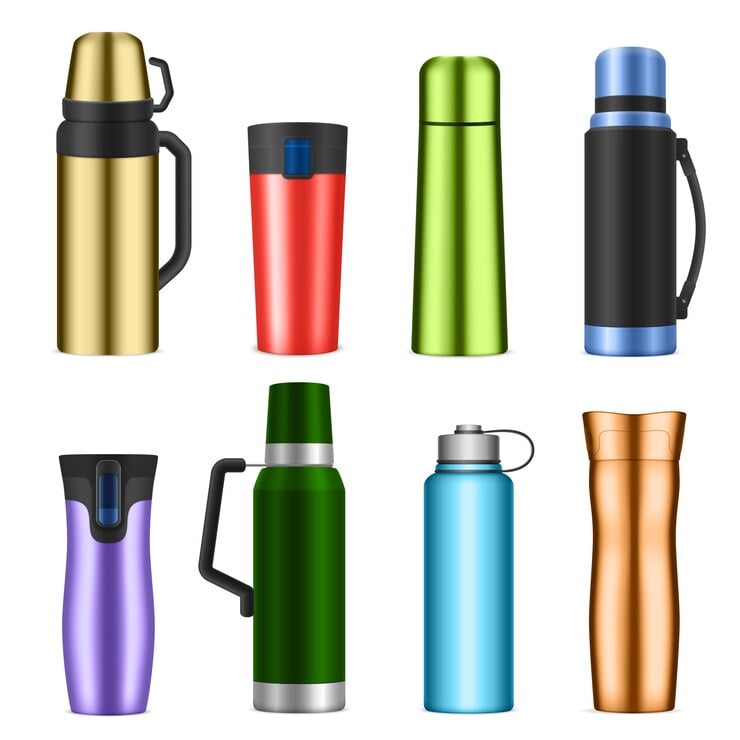
Health Concerns About BPA
Bisphenol A (BPA) is a chemical commonly used in the production of plastics and resins, including those found in water bottles, food containers, and other consumer goods. However, research has raised significant health concerns about BPA exposure.
BPA can mimic the structure and function of the hormone estrogen, leading to potential disruptions in the endocrine system. This can affect reproductive health, development, and metabolism. Studies have linked BPA exposure to metabolic disorders such as obesity, diabetes, and cardiovascular issues. BPA can interfere with normal metabolic processes, contributing to these conditions.
Research has shown that BPA exposure can lead to changes at the cellular level in the brain, resulting in learning difficulties, increased aggressiveness, hyperactivity, and other behavioral changes. BPA has been associated with reduced fertility in both men and women, potentially affecting hormone production and reproductive health.
Some studies suggest a link between BPA exposure and an increased risk of certain cancers, although more research is needed to establish a definitive connection.
- BPA and Gut Microbiota: A 2024 study found that BPA exposure can alter the gut microbiome, potentially contributing to obesity. The study suggested that normal-weight children had more unique bacteria taxa that might help degrade BPA, highlighting the complex interplay between BPA exposure and gut health.
- Human Metabolic Effects: Another study in 2024 reviewed the metabolic effects of BPA, confirming its adverse impact on physiological processes and its role in the onset of metabolic disorders. The study emphasized the need for effective removal methods to reduce BPA exposure.
- Remediation Strategies: Research has also focused on developing remediation strategies to remove BPA from contaminated water, including biological treatments and hybrid photocatalytic membranes. These methods aim to reduce human exposure to BPA and mitigate its health effects.
Given these health concerns, it’s important to choose BPA-free water bottles and other products to minimize exposure.
What are the health benefits of avoiding BPA?
Avoiding BPA (Bisphenol A) can have significant health benefits, as supported by recent research in 2024:
- Reduced Risk of Type 2 Diabetes: A study presented at the American Diabetes Association’s 84th Scientific Sessions found that reducing BPA exposure can decrease the risk of type 2 diabetes. The study showed that BPA administration decreased peripheral insulin sensitivity, which is crucial for managing blood sugar levels.
- Improved Cardiometabolic Health: Research published in the Journal of Hazardous Materials in September 2024 linked early BPA exposure to increased risks of heart disease, stroke, type 2 diabetes, and obesity later in life. The study emphasized the importance of reducing BPA exposure, especially in children and adolescents, to improve overall cardiometabolic health.
- Lowered Insulin Resistance: Another study found that BPA exposure was associated with higher blood insulin levels and insulin resistance, which means the body cannot use insulin properly to regulate blood sugar levels. Avoiding BPA can help maintain healthy insulin function and reduce the risk of metabolic disorders.
- Decreased Obesity Risk: The same study also found that higher BPA exposure was linked to increased body mass index (BMI) and fat mass, suggesting that avoiding BPA can help in maintaining a healthy weight.
By choosing BPA-free products, such as stainless steel or glass water bottles, you can help reduce these health risks and promote overall well-being. It’s great to see more awareness and research focusing on the impact of BPA and the benefits of avoiding it.
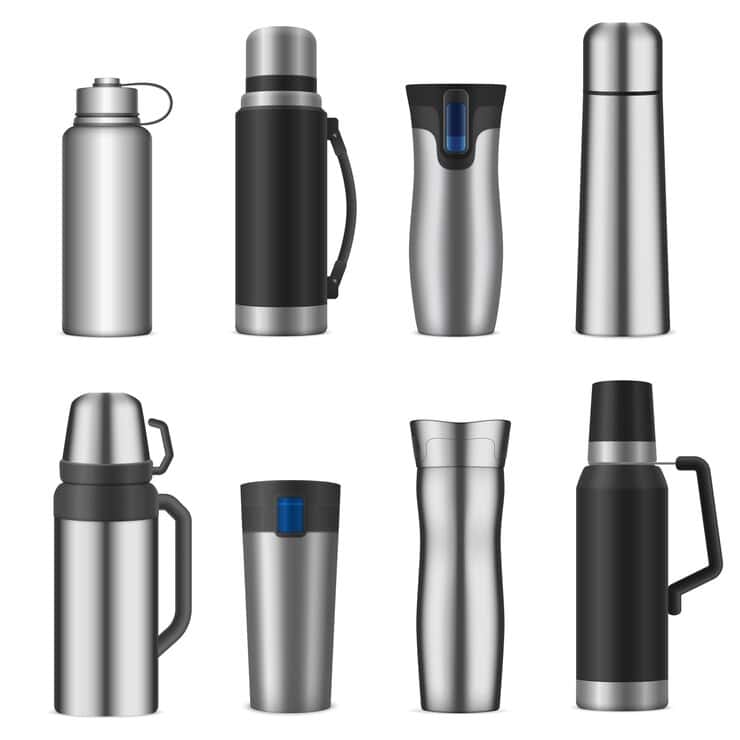
How do reusable bottles help the environment?
Reusable water bottles have a significant positive environmental impact, especially when compared to single-use plastic bottles. Reusable bottles help reduce the amount of plastic waste that ends up in landfills and oceans. By using a reusable bottle, you can prevent hundreds of single-use plastic bottles from being discarded each year.
The production and transportation of single-use plastic bottles contribute to greenhouse gas emissions. Reusable bottles, especially those made from stainless steel or glass, have a lower carbon footprint over their lifetime.
Manufacturing single-use plastic bottles requires significant amounts of non-renewable resources like oil and natural gas. Reusable bottles help conserve these resources by reducing the demand for new plastic production.
Movements and Events in 2024
- Paris 2024 Olympics: The 2024 Olympic Games in Paris are setting new sustainability standards by using reusable cups and packaging. This initiative aims to reduce plastic waste and promote large-scale reuse systems.
- Web Summit 2024: The Good Bottle, a pioneering eco-innovation, showcased its biodegradable packaging at Web Summit 2024 in Lisbon. This event highlighted the urgent need to reduce single-use plastics and promote sustainable consumer practices.
- Break Free From Plastic Movement: This global movement continues to advocate for reducing plastic pollution by encouraging the use of reusable packaging. The movement has been instrumental in raising awareness and pushing for policy changes to address plastic waste.
By choosing reusable bottles and supporting these movements, you can contribute to a more sustainable future and help protect the environment.
Top BPA-Free Water Bottle Materials for Vegans
Here are some top BPA-free water bottle materials for vegans, along with some product recommendations:
A. Stainless Steel
Contigo Ashland Chill 2.0
This bottle features a spout lid with a straw for easy drinking on the go. It’s double-walled and vacuum insulated to keep drinks cold for hours. It also has a protective spout cover and a carry handle for convenience. Often seen with fitness trainers and athletes for its durability and insulation properties.
Capacity: Available in multiple sizes, commonly 24 oz.
Owala FreeSip Insulated Stainless Steel Water Bottle
This versatile bottle allows you to sip through a built-in straw or chug through the wide mouth opening. It has double-wall insulation to keep drinks cold and a leak-proof lid with a carry loop. Popular among fitness influencers and outdoor enthusiasts for its versatile drinking options.
Capacity: Comes in 19 oz, 24 oz, and 32 oz sizes.
B. Glass
Takeya Sure-Grip Glass Water Bottle
This bottle has a protective silicone sleeve for a secure grip and added durability. It features an airtight, leak-proof lid and a wide mouth for easy filling and cleaning. Preferred by health professionals and nutritionists for its chemical-free glass and easy cleaning.
Capacity: Typically available in 22 oz and 32 oz sizes.
PROBTTL 32 Oz Borosilicate Glass Water Bottle
Made from high-quality borosilicate glass, this bottle is resistant to thermal shock. It has a silicone sleeve for protection and grip, and a leak-proof lid. Used by celebrities for its stylish design and high-quality glass.
Capacity: 32 oz.
C. BPA-Free Plastic
Dasani BPA-Free Water Bottle
Lightweight and durable, these bottles are made from BPA-free plastic. They are designed for everyday use and are often available in large quantities. Often recommended by dietitians and health coaches.
Capacity: Various sizes, commonly around 16.9 oz.
Evian BPA-Free Water Bottle
These bottles are made from BPA-free plastic and are designed for convenient hydration on the go. They are often associated with natural spring water. Seen with celebrities for its association with natural spring water and BPA-free guarantee.
Capacity: Typically 500 ml and 1 liter sizes.
D. Plant-Based Materials
Wander Bottle
This eco-friendly bottle is made from plant-based materials and is fully biodegradable. It’s designed to be lightweight and durable, making it a great choice for those looking to reduce plastic use. Popular among environmental activists and eco-conscious influencers for its biodegradable materials.
Capacity: Varies, commonly around 500 ml.
EcoLunchbox Stainless Steel Water Bottle
While primarily made from stainless steel, this bottle features plant-based components for the lid and carrying strap. It’s designed to be sustainable and durable, perfect for everyday use. Used by nutritionists and eco-friendly lifestyle coaches for its sustainable design and plant-based components.
Capacity: Available in various sizes, typically around 20 oz.
These options provide a range of sustainable and health-conscious choices for staying hydrated.
Eco-Friendly Water Bottle Options for Plant-Based Diets
When choosing an eco-friendly water bottle, especially for those following a plant-based diet, it’s important to consider both the materials used and the production methods. Here are some options and their sustainable features:
- Stainless Steel Bottles: Made from high-quality stainless steel, which is durable and recyclable. Stainless steel production has a lower environmental impact compared to plastic, and it can be recycled indefinitely without losing quality.
- Glass Bottles: Made from glass, which is chemically stable and doesn’t leach chemicals into beverages. Glass production involves high energy consumption, but it’s 100% recyclable and can be reused multiple times. Many brands offer glass bottles, but ensure they are BPA-free and designed for durability.
- Aluminum Bottles: Made from aluminum, which is lightweight and recyclable. Aluminum production is energy-intensive, but recycling aluminum saves up to 95% of the energy required to produce new aluminum. Look for BPA-free options and those made from recycled aluminum.
- Biodegradable Bottles: Made from plant-based materials like PLA (Polylactic Acid) derived from corn starch or sugarcane, or PHA (Polyhydroxyalkanoates) produced by microorganisms. These materials decompose naturally without leaving harmful residues, reducing plastic pollution.
Here are some companies that use sustainable materials and production methods for their BPA-free water bottles:
1. Klean Kanteen
Klean Kanteen uses 18/8 stainless steel that is BPA-free and electropolished in a non-toxic process. Their bottles are also Climate Lock double-wall vacuum insulated to maintain temperature. They focus on sustainable manufacturing practices, including using recycled materials and ensuring their products are recyclable.
2. Ecovessel
Ecovessel produces stainless steel water bottles that are non-toxic and BPA-free. They are a member of 1% for the Planet, pledging 5% of their sales to non-profits, and they use eco-friendly production methods.
3. Hydro Flask
Hydro Flask uses BPA-free stainless steel for their bottles, which are insulated to keep drinks cold or hot for extended periods. They have donated $2.5 million to support parks and other environmental initiatives. Their production process focuses on durability and sustainability.
4. Purifyou
Purifyou offers reusable water bottles made from BPA-free Tritan plastic, which is known for its safety and durability. They emphasize reusability and offer replacement lids, promoting a longer product lifespan and reducing waste.
5. Wander Bottle
Made from plant-based materials, Wander Bottle is fully biodegradable and BPA-free. They focus on eco-friendly production, ensuring that their bottles are sustainable and have a minimal environmental impact.
These companies are committed to producing BPA-free water bottles using sustainable materials and methods, helping to reduce environmental impact and promote a healthier lifestyle.
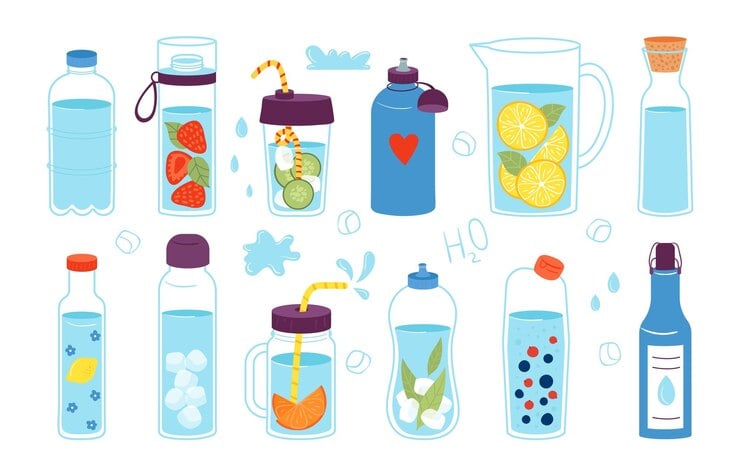
How to Clean and Maintain Your Vegan-Friendly Water Bottle
Keeping your vegan-friendly water bottle clean and well-maintained ensures it stays fresh, safe to use, and long-lasting. Here are some practical cleaning techniques and tips for maximizing the longevity of your water bottle:
Daily Rinse: Rinse your water bottle with warm water after each use to remove any residue. This helps prevent the buildup of bacteria and mold.
Deep Cleaning: At least once a week, deep clean your bottle to ensure thorough sanitation. Use a bottle brush with warm, soapy water. Scrub the inside of the bottle, paying special attention to the bottom and any hard-to-reach areas. Mix equal parts water and white vinegar for a natural and effective cleaning solution. Let it sit in the bottle for a few minutes, then scrub and rinse thoroughly.
Disinfecting: Fill your bottle with boiling water and let it sit for a few minutes to kill any bacteria. Alternatively, use a solution of one tablespoon of baking soda mixed with water. Let it sit, then scrub and rinse.
Lid and Cap Cleaning: Remove the lid and cap to clean separately. Use a small brush or a toothbrush to clean any grooves or threads where grime can accumulate. Soak the lid and cap in warm, soapy water, then rinse thoroughly.
Dishwasher: If your bottle is dishwasher-safe, place it on the top rack. Always check the manufacturer’s instructions to avoid damaging your bottle.
Tips for Longevity
Don’t expose your bottle to extreme temperatures (like freezing or boiling) unless specified by the manufacturer. Sudden temperature changes can cause materials to warp or crack. Store your bottle with the lid off to prevent moisture buildup and odors. Keep it in a dry, cool place.
Use mild, natural cleaning solutions. Avoid bleach or abrasive cleaners that can damage the bottle’s surface. Periodically check for wear and tear on seals, lids, or caps. Replace any worn-out parts to maintain the integrity of your bottle.
Inspect your bottle regularly for any cracks, dents, or signs of wear. Address any issues promptly to prevent leaks or contamination. Prolonged UV exposure can degrade certain materials and impact the bottle’s durability and safety.
By following these cleaning and maintenance tips, you can ensure your vegan-friendly water bottle remains in top condition, providing you with safe and refreshing hydration every time.
Hydration Tips for Vegans
Staying hydrated is crucial for everyone, especially for those following a plant-based diet. Aim to drink at least half your body weight in ounces of water daily. Keep your water bottle handy and sip throughout the day. Plant-based eaters can benefit from electrolytes like potassium, magnesium, and calcium found in fruits, vegetables, nuts, and seeds.
Incorporate fruits and vegetables with high water content, such as cucumbers, watermelon, oranges, and strawberries. While coffee and tea can be part of your hydration plan, they can also have a diuretic effect, so balance them with plenty of water.
Homemade Vegan Drink Recipes
Lemon Ginger Water (Recipe by @naturallyzuzu): Add lemon and ginger slices to your water bottle. Fill with water and let it infuse for a few hours for a refreshing, hydrating drink.
Cucumber Mint Water (Recipe by @sweetpotatosoul): Add cucumber slices and mint leaves to your water bottle. Fill with water and let it sit for a few hours to enjoy a cool, minty drink.
Berry Infused Water (Recipe by @glowdiaries___): Add mixed berries to your water bottle. Fill with water and let it infuse for a fruity, delicious drink.
Coconut Water (Recipe by @veganbodybuilding): Mix coconut water with regular water for a hydrating, electrolyte-rich drink.
Green Tea with Lemon (Recipe by @veganeatsoxford): Steep a green tea bag in hot water, then add lemon slices and let it cool. Pour into your water bottle for a refreshing, antioxidant-rich drink.
These recipes are not only hydrating but also add a burst of flavor to your water, making it more enjoyable to drink throughout the day.
Final Thoughts
Choosing the right BPA-free water bottle is about finding the balance between health benefits, environmental impact, and practical features tailored to your needs. With so many great options available, you can enjoy safe and sustainable hydration wherever you go as a vegan.
FAQs
What water bottles have no BPA?
Many water bottles are BPA-free, including those made of stainless steel, glass, or certain types of plastic. Popular brands like Hydro Flask, Klean Kanteen, and S’well offer a wide range of BPA-free options.
Are BPA-free water bottles better?
While BPA-free water bottles are generally considered safer than those containing BPA, it’s essential to choose high-quality products from reputable brands. Some studies suggest potential health risks associated with certain chemicals used in BPA-free plastics.
What is the healthiest water bottle to use?
Stainless steel water bottles are often considered the healthiest option due to their durability, reusability, and lack of chemical leaching. However, glass and certain BPA-free plastic bottles can also be healthy choices.
Is Owala non-toxic?
Owala water bottles are generally considered safe and non-toxic. They are made from BPA-free materials and are designed to be durable and reusable. However, it’s always a good idea to follow the manufacturer’s cleaning instructions to maintain product integrity.


